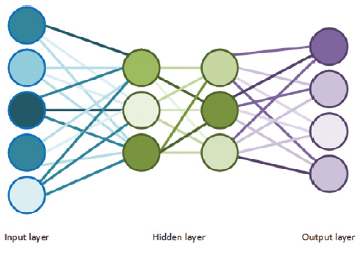THANK YOU FOR SUBSCRIBING
Editor's Pick (1 - 4 of 8)

Cognitive Technology: What Will Watson Become?
Michael Blake, Digital Transformation Manager, Findex


Michael Blake, Digital Transformation Manager, Findex
We’ve entered a period of almost extreme data collection, creating scenarios where the sheer amount of information being collected by machines, for machines is truly unparalleled
 For now, sectors like education, data science, project management, and hospitality are partially immune from cognitive technologies as they remain less predictable and have limited risk to human safety. Computers can augment day to day work, but are still some way from being able to successfully interact naturally with humans from end-to-end. Despite this, we are learning to interact with machines during traditionally human-to-human interactions. Think McDonald’s self-order station or the new self-service checkouts in supermarkets.
“Picture a ladder”
Like climbing a ladder, computers can easily assist in dealing with the bottom three rungs on the ladder – the predictable, repeatable initial steps. Beyond this, things become more complex, and we find the edge of the current capabilities of cognitive technology. As you climb to rung four, you need take account of sway and worry more readily about weather conditions in order to remain upright, reducing certainty. Rung five exponentially increases the variables and so on.
Once computers learn enough to ignore specific variables, they can confidently climb the next rung on the ladder, making the fourth rung now as easy to climb as the first three for everyone. Each rung is more complex than the last, as alternatives stack on alternatives and multiply. Eventually we reach the top of the ladder and realise full cognition, at which point machines can then find unique points of difference. Until then, the machines will keep learning.
Check Out : Top Cognitive Technology Startups
For now, sectors like education, data science, project management, and hospitality are partially immune from cognitive technologies as they remain less predictable and have limited risk to human safety. Computers can augment day to day work, but are still some way from being able to successfully interact naturally with humans from end-to-end. Despite this, we are learning to interact with machines during traditionally human-to-human interactions. Think McDonald’s self-order station or the new self-service checkouts in supermarkets.
“Picture a ladder”
Like climbing a ladder, computers can easily assist in dealing with the bottom three rungs on the ladder – the predictable, repeatable initial steps. Beyond this, things become more complex, and we find the edge of the current capabilities of cognitive technology. As you climb to rung four, you need take account of sway and worry more readily about weather conditions in order to remain upright, reducing certainty. Rung five exponentially increases the variables and so on.
Once computers learn enough to ignore specific variables, they can confidently climb the next rung on the ladder, making the fourth rung now as easy to climb as the first three for everyone. Each rung is more complex than the last, as alternatives stack on alternatives and multiply. Eventually we reach the top of the ladder and realise full cognition, at which point machines can then find unique points of difference. Until then, the machines will keep learning.
Check Out : Top Cognitive Technology Startups












